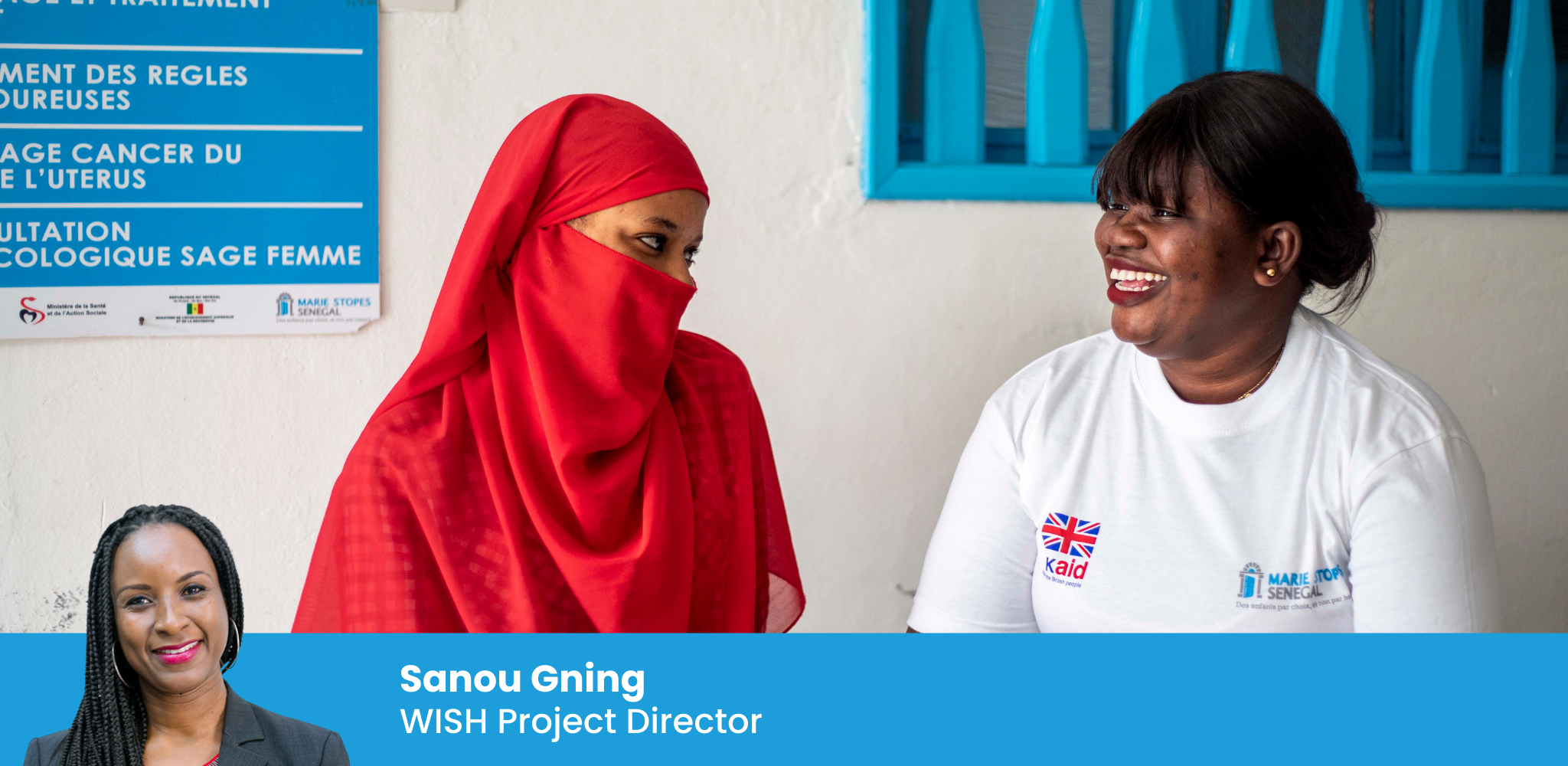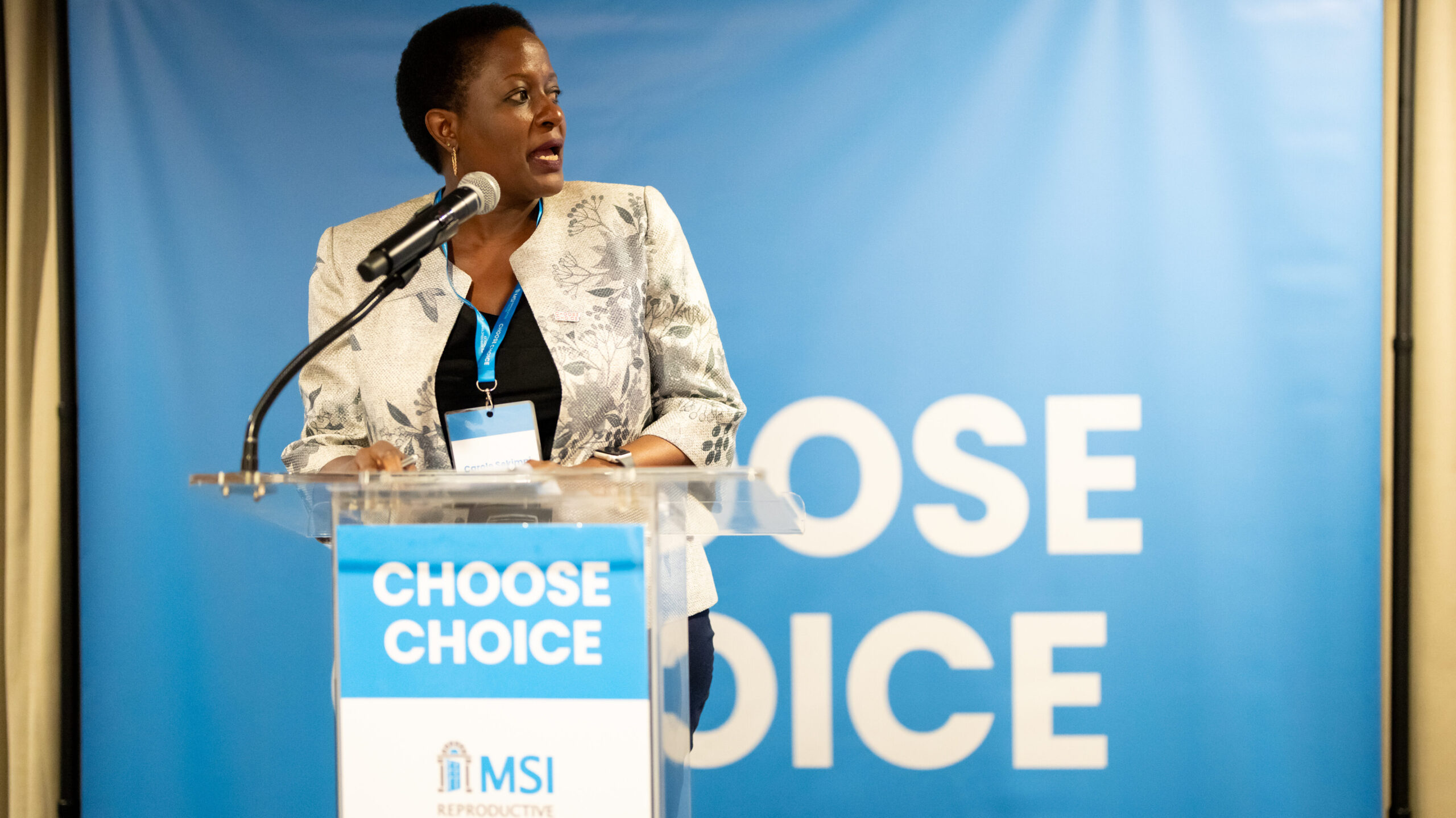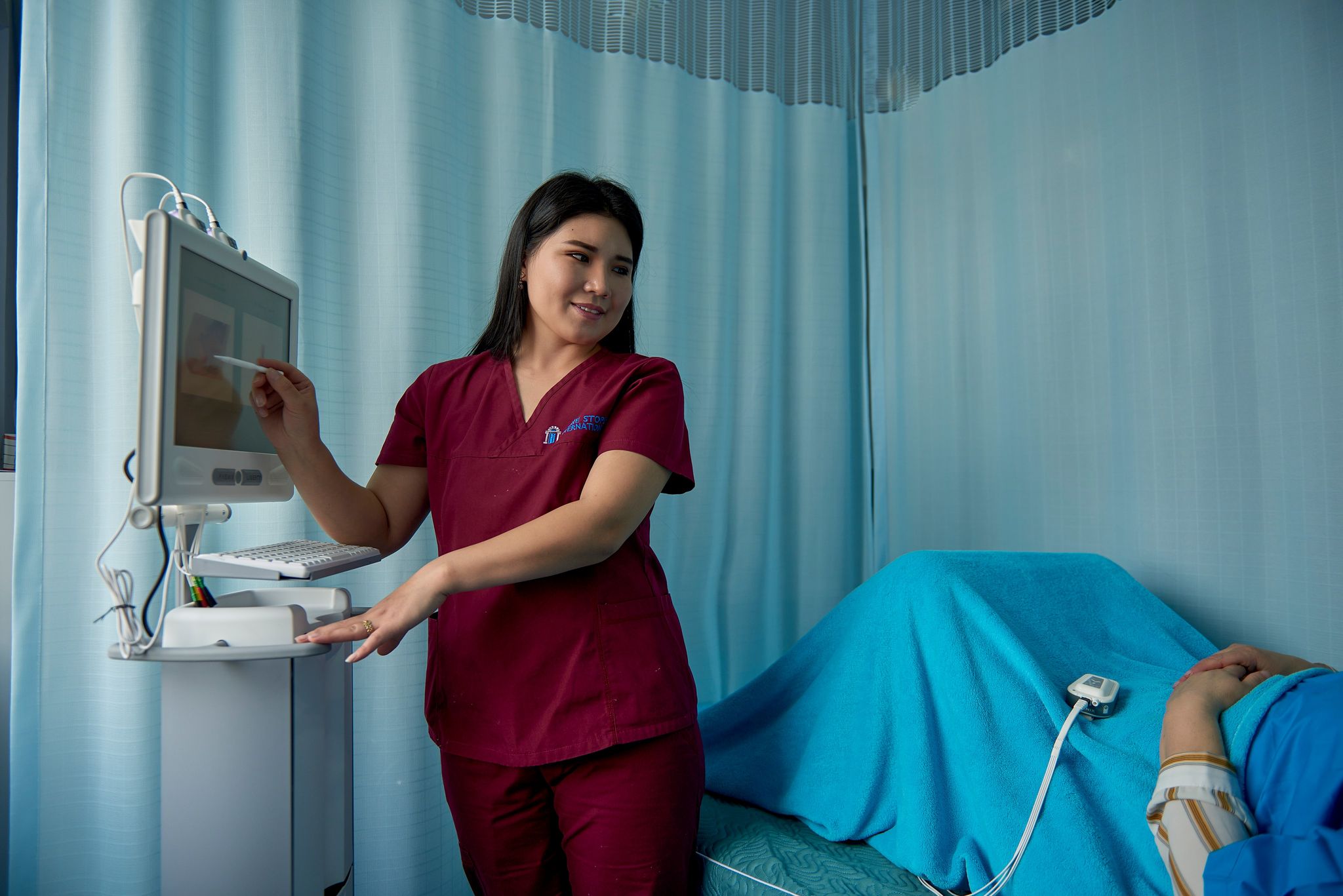At MSI Reproductive Choices, we welcome the commitment from the World Health Organisation to work towards to the elimination of cervical cancer, but we know we have a fight ahead of us.
In this article, we’ll share our insights into how cervical cancer screening and preventative therapy services can be successfully integrated in wider sexual and reproductive healthcare, and how we’re committed to playing our part in making cervical cancer history.
We know that in 2018, 311,000 women died needlessly from cervical cancer, with 85% of these deaths taking place in low- and middle-income countries, where many women lack access to preventive measures. Fortunately, we also know that there are strategies available to help us fight this disease: through vaccinating girls with the HPV vaccine, screening women regularly, and ensuring access to preventative treatment, we can go a long way in making cervical cancer history. At MSI Reproductive Choices, through providing high quality, integrated sexual and reproductive healthcare, we are committed to playing our part to get there.
Eliminating cervical cancer: Playing our part in a shared goal
In 2019, we welcomed an announcement from Dr Tedros Adhanom Ghebreyesus, the Director General of the WHO, calling for the elimination of cervical cancer. According to WHO modelers, in order to achieve this, 90% of all girls aged 9-14 will need to be vaccinated, 70% of all women aged 30-49 need to be screened and 90% of all those in need of treatment will need to receive appropriate treatment. A key strategy to achieve this ambitious goal is to integrate cervical cancer screening and preventative therapy (CCS&PT) with other key sexual and reproductive healthcare services. This is where organisations like MSI can make an impact.
We know from our programmes that by integrating cervical cancer prevention services with other services, we can not only prevent deaths from cervical cancer, but help women access other essential healthcare services too, such as contraception and safe abortion. What’s more, by integrating sexual and reproductive health services in this way, we can place women at the heart of our programming. As we’ll share in this piece, we know from our own service data that by providing a range of services via a ‘one-stop-shop’, we can increase service uptake and improve client experience, together.
Increasing access with integrated services
Across 20 of our country programmes in sub-Saharan Africa and Asia, MSI provides cervical cancer prevention services through a variety of channels, including at our own centres (clinics), through our network of socially franchised private clinics, as well as via our mobile outreach teams (delivering services in mainly rural health centres) and our community health workers (MSI Ladies). These services consist of VIA screening (Visual Inspection with Ascetic Acid), HPV DNA testing and, in some settings, HPV vaccines. Under an initiative funded by the Bill & Melinda Gates Foundation to scale up cervical cancer screening and preventative therapy, in 2013-2018 in Kenya, Nigeria, Tanzania and Uganda, MSI, in partnership with IPPF and PSI, screened 1.4 million women and treated 34,000 women with cryotherapy. We evaluated and adapted our programme design throughout and as a result, our treatment rate increased from 10% at the beginning of the programme to close to 90% by the end of the 5-year initiative.
Through our Gates-funded initiative, we learned several key lessons on the value of integrating cervical cancer preventative therapies into our wider sexual and reproductive healthcare offering. We found that many women were worried about cervical cancer, often due to known deaths in their communities, so were pleased to have the screening services available, conveniently. We also found that many women chose to access contraceptive services during the same visit, often using the opportunity to opt for a long term or permanent method of contraception. In tandem, we found that counselling on cervical cancer helped to dispel myths around the use of IUDs. Data from our centres network in Uganda showed that facilities that provided cervical cancer screening had a 30% higher uptake of IUDs than those that did not offer integrated services. We found that the cervical cancer screening procedure itself also helped women overcome the fear of IUD insertion. As a result, the initiative demonstrated that integrated service delivery is not only convenient and client-centred, but helped to increase access to essential, sometimes life-saving, reproductive healthcare services too.
Concurrently, our client exit interviews have shown that integrated services can improve access for women who struggle with the continued stigma linked with sexual and reproductive healthcare. In our 2019 client exit interviews, we asked over 1,900 safe abortion clients about why they chose MSI over an alternative provider and 1 in 10 clients (10.9%) shared that it was due to the centre offering additional general health services alongside safe abortion care. We know that due to stigma around sexual and reproductive healthcare, such as safe abortion, clinics that provide a range of healthcare services can offer an improved and more confidential client experience, such as via cervical cancer screening and preventative therapy.
Looking forward: Innovations and onward partnership
In many of the settings we work in, the WHO claims that as few as 10% of women have access to cervical cancer screening and even fewer girls have access to HPV vaccines. Although progress has been made to improve the availability and quality of cancer screening and preventative therapy services, we know that there is still much work to be done before we reach our goal of eliminating cervical cancer for good.
To help get there, MSI has been trialing new and innovative technologies and approaches to improve the availability and quality of screenings and preventative therapies for women. In Tanzania, for example, we built on the accuracy and reach of our services, and introduced HPV DNA testing, achieving close to a 100% treatment rate for women who are HPV positive and eligible for cryotherapy, while using visually enhanced VIA to improve the quality of our screenings too. HPV DNA testing is more sensitive than Visual Inspection with Ascetic Acid so with improved accuracy of results, we can ensure we catch all lesions and provide the best possible treatment. Going forward, as part of our integrated service offering, we also hope to expand access to HPV vaccines, as a core component for eliminating cervical cancer.
However, we know that not one organisation can achieve this alone. That’s why we are proud to work closely with the WHO, Cervical Cancer Action for Elimination, Together for Health and other partners, contributing our frontline knowledge of the essential role that sexual and reproductive healthcare providers can play.
It’s for the reasons in this article and many more that MSI welcomes the adoption of the WHO’s resolution on Cervical cancer prevention and control: Accelerating the elimination of cervical cancer as a public health problem. We look forward to working closely with our partners at the WHO, as well as forging new ones, to ensure a concerted and coordinated effort towards finally making cervical cancer history.
Written by Raveena Chowdhury, Head of Integrated Service Delivery at MSI








